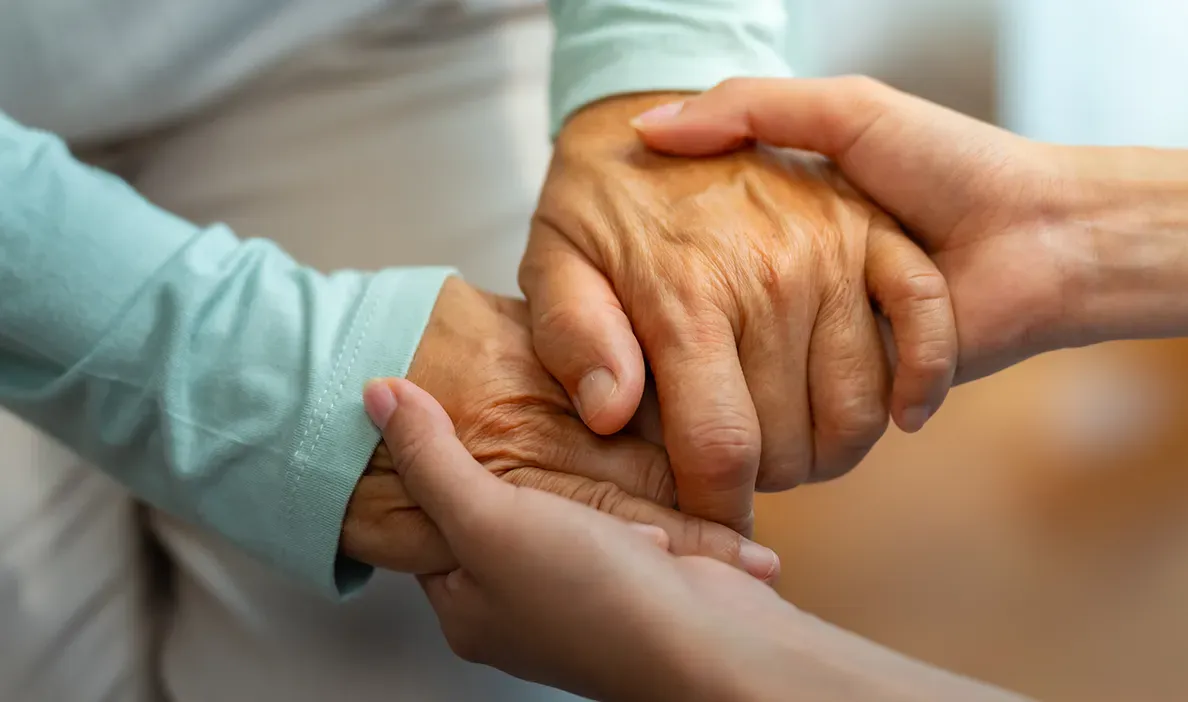When someone close to you is living with cancer, you may want to do everything you can to make sure they feel cared for and supported. Your love and kindness can make all the difference, especially on the harder days. But sometimes, finding the right way to help isn’t easy, especially if your loved one finds it difficult to ask for, or accept, help.1
If you'd like to lend a hand and show support, you can take the initiative—gently letting them know you're there and ready to help in meaningful and practical ways.
It’s worth remembering that everyone’s experience with cancer is different.2 Some people are vocal about their needs and won’t hesitate to ask for help, while other people may be hesitant to lean on others. Some people might need help but simply not know where to start when it comes to asking.1
Why "How can I help?" may not be the best question
While offering to help is kind and well-meaning, asking “How can I help?” or saying “Let me know if you need anything” can sometimes feel too open-ended. Your loved one might not want to burden you, or they might struggle to know exactly what they need. This may leave them feeling unsure of how to respond, even if they could use some extra support.
Instead of asking broad questions, consider being a bit more specific with your offers. Think about their day-to-day responsibilities and what might feel overwhelming right now. Where could you step in to help lighten the load?
Here are a few ways you can offer support in a more actionable way:2
- Help with everyday tasks like cooking, cleaning, or running errands. For example, you could offer to visit one afternoon to take care of the laundry.
- If they have children, you could volunteer to take them to school or their clubs this week, or offer to babysit so your loved one can rest or attend a doctor’s appointment.
- Provide companionship. Cancer and its treatment can feel isolating, so spending time together—whether it’s watching a movie, going for a gentle stroll, or just sitting and chatting—can make a world of difference.
- If they have less energy to cook, you could offer to try out some recipes and drop some off for the week.
- The ByYourSide app can help you create a schedule of practical support, from meal preparation to arranging lifts to medical appointments.
Respect their preferences
While you might have lots of ideas to help, it’s also important to respect your loved one’s independence. Listen closely when they share how they’re feeling or what they need.1
If they enjoy some activities—like cooking or tidying—try stepping in with support elsewhere. Offer with kindness, and if they decline, that’s okay too. Just letting them know you’re there if they change their mind can be enough.2
The importance of being there
Showing your love and care doesn’t have to be grand. Sometimes, the biggest gift you can give is just being there to listen. Living with cancer can bring a mix of emotions—fear, hope, exhaustion, and more. Listening without judgment and without rushing to offer solutions, can help your loved one feel heard and less alone.1
You don’t always need to fix things; whether it’s a phone call to check in or, just sitting quietly together, simply being there is enough.1
And if your support isn’t needed when you offer, don’t worry—it just means they feel steady for now. When the time is right, your willingness to help will mean the world to them. To learn more about how to keep the conversation going, read our article on How to communicate in a caring way.
Cancer is a part of their life, but it doesn’t define who they are — and your role as a supportive friend or family member is to help remind them of that.2 With a little thoughtfulness and compassion, you can help make their days feel just a little brighter.
References
- MD Anderson Cancer Centre. 17 ways to help someone during cancer treatment. Available at: www.mdanderson.org/cancerwise/19-ways-to-help-someone-during-cancer-treatment.h00-159223356.html [Accessed June 2025].
- Cancer Research UK. How to support someone with cancer. Available at: www.cancerresearchuk.org/about-cancer/coping/family-friends-caregivers/how-support-someone-with-cancer [Accessed June 2025].






